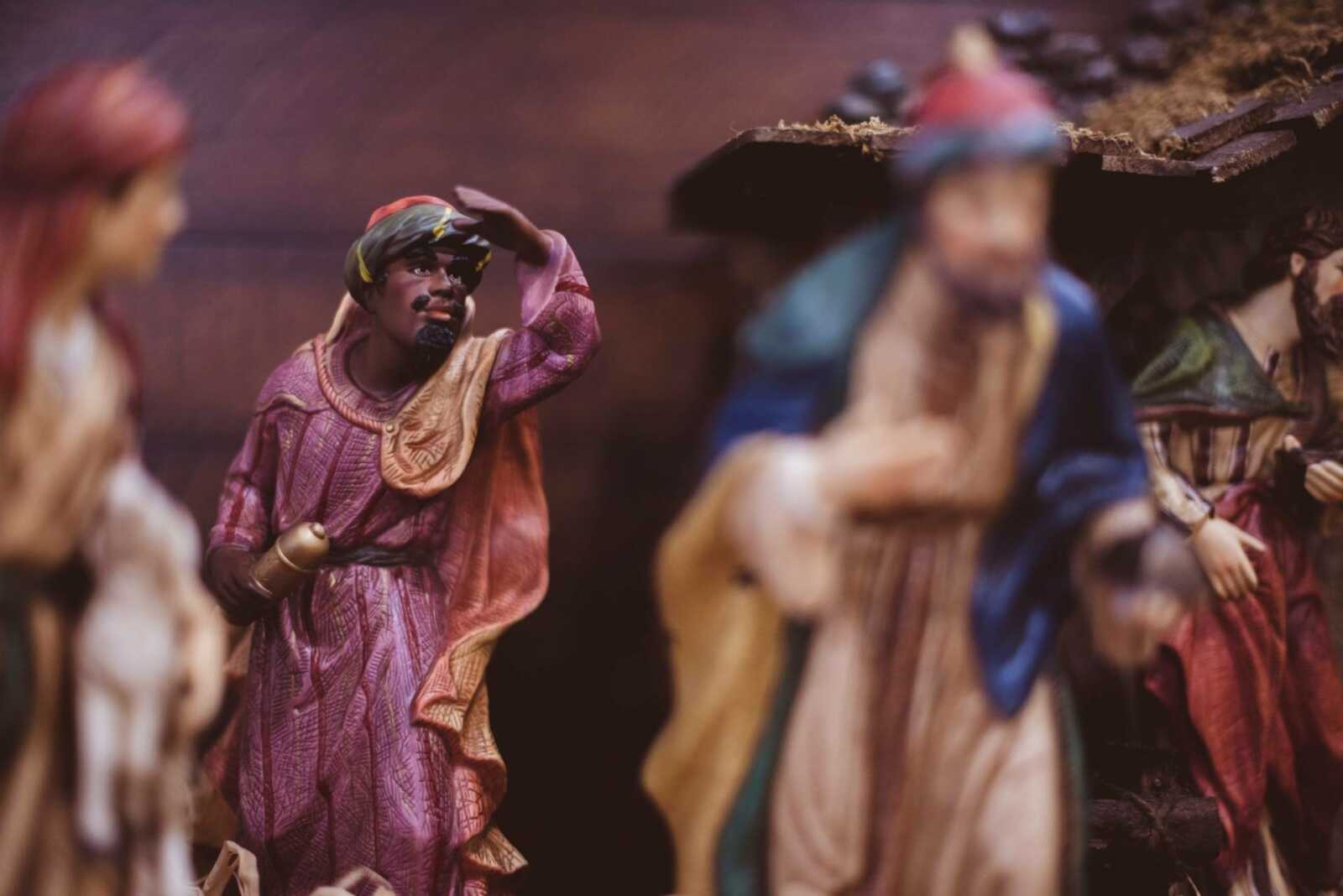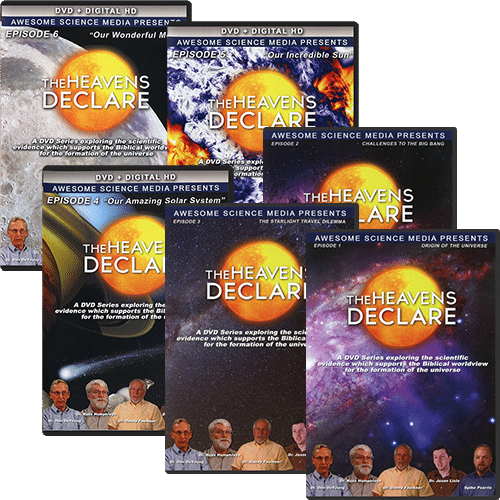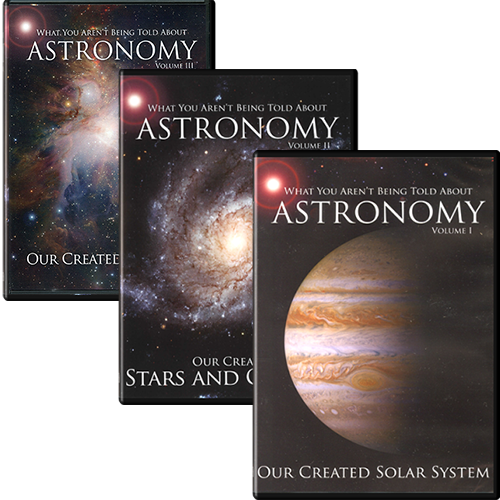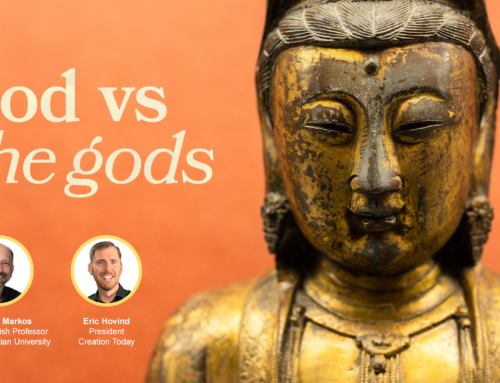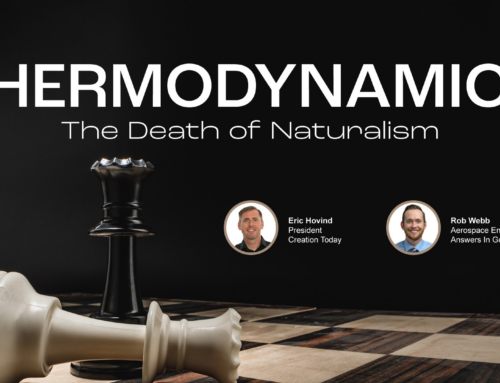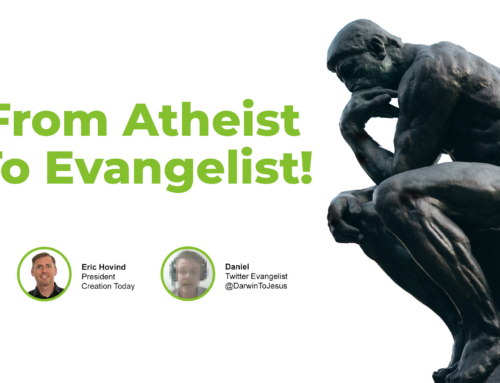One of the most evocative images from any Christmas scene must be that of the Wise Men attending Jesus’ birth, and the star hovering over the stable where He was born. But so few people actually know what the Bible really says about this event, or what it actually means for us today.
Bible Q&A Podcast – Is Christmas a Pagan Holiday?
The event is recorded in Matthew 2:
Now after Jesus was born in Bethlehem of Judea in the days of Herod the king, behold, wise men from the East came to Jerusalem.
When did the event take place?
The actual journey of these wise men could easily have taken a long time. It would appear from Matthew 2:7 that the star, which the wise men had seen, had appeared at the moment of Jesus’ birth. But the wise men had arrived after the birth. If they saw the star at the moment of Jesus’ birth, then it would have taken at least a few months for the wise men to arrive.
We will say something about Herod — who he was and what he was like — a little later. For now, we should note that he wanted to know the exact time the star had appeared, presumably so he could pinpoint the exact moment of this special child’s birth. He later proceeded to have all baby boys killed who were two years old and under (Matthew 2:16). This would indicate that Jesus had been born up to two years previously. So the wise men did not arrive at the same time as the shepherds, who arrived the same day as the birth (Luke 2:11). Indeed, Jesus’ family was no longer in a stable; they were living in a house at that time (Matthew 2:11).
Who were the Wise Men?
The Greek word for the wise men is μαγοι, (magi). It is from this word that we get our word magician. At that time, the boundary between those who attempted to perform occult experiments and those who performed legitimate science would have been blurred. For example, early chemists were alchemists, trying to change one substance into another (usually gold) by all sorts of methods, including incantations, but also including methods that we would recognize today as experimental chemistry. Similarly, these magicians could probably be referred to as scientists in a broader sort of way.
As they came from the East, they could have been associated with the magicians mentioned in Daniel. In Daniel 2, King Nebuchadnezzar is speaking to people who are referred to as magicians, astrologers and wise men. These could very well be the same group of people. There is some additional evidence for this below.
Before continuing our investigation into who the wise men were, we should briefly comment on how many there were. In fact, we do not know how many there were. The word magi is plural, so there must have been at least two. However, there could have been many more. The legend that there were three, and that we know their names, is just a legend. The idea of three wise men may have developed, because there were three types of gifts presented by the wise men to Jesus (Matthew 2:11).
In Daniel 2, the wise men were unable to tell King Nebuchadnezzar his dream, before attempting to interpret it. The king therefore threatened to have them all put to death (Daniel 2:12). Indeed, it would appear that the order to kill the wise men had already begun (Daniel 2:13), when Daniel heard of it. Daniel and his companions were already counted among the wise men, because they had been trained as such and interviewed for inclusion in the ranks of the wise men (Daniel 1:18-20). Daniel’s inclusion among the wise men shows that the wise men were not necessarily occultists, as Daniel and his companions accepted their inclusion, even though they had refused to eat the meat sacrificed to idols in Daniel 1.
When Daniel told the king his dream and its interpretation, he made clear that he was not able to do this because of his own wisdom, and that the wise men had been correct in stating that no man could do what the king had asked. Instead, Daniel gave glory to God, stating that he could only do this amazing thing, because God had revealed the dream and interpretation to him. At the end of Daniel 2, we read that Daniel was to be chief administrator over the wise men, who, presumably, were to be spared.
How did the Wise Men know the significance of the star?
If we are right about the identity of the wise men, this gives us a clue as to why they would know about the star. The star is mentioned in Numbers 24, and is prophesied by an unusual character, called Balaam.
Balaam seems to have been a sort of traveling soothsayer, and as such was probably a sort of “ancestor” to the Babylonian wise men of Daniel’s time. He was based at Pethor, which is not only near the River Euphrates (Numbers 22:5), but also close to Babylon. Balaam was contracted by Balak to curse the Israelites. Balak was the king of Moab at that time, and the Israelites were moving through Moabite territory as part of their long sojourn to the Promised Land. The Israelites were not going to settle in Moab, so the Moabites had the opportunity, as had the Edomites and Amorites before them, to show hospitality to the Israelites and enable them to go on their way (Numbers 20:17-18; 21:22-23). Like the Edomites and Amorites, the Moabites were to disobey God, but they were to do so by contracting this magician named Balaam. The account of what happened to Balaam — how he was commissioned, how he was warned about his behavior by God, how God rebuked him by making his donkey talk and how his every attempt to curse the Israelites simply led to them being blessed — can be found in Numbers 22 through 24. In one of Balaam’s attempts to curse the Israelites, he ended up uttering this prophecy:
I see Him, but not now; I behold Him, but not near; A Star shall come out of Jacob; A Scepter shall rise out of Israel, And batter the brow of Moab, And destroy all the sons of tumult. (Numbers 24:17)
In one sense, the prophecy applies to Israel itself, particularly with reference to David’s conquest of the Moabites (2 Samuel 8:2). However, the concept of the scepter, a symbol of kingship, refers not only to David, but to David’s greater son, and refers back to Genesis:
The scepter shall not depart from Judah, Nor a lawgiver from between his feet, Until Shiloh comes; And to Him shall be the obedience of the people. (Genesis 49:10)
This passage from Genesis refers to the coming Messiah, to be descended from Judah so, by inference, we can suggest that Numbers 24:17 also refers to the coming Messiah. If Balaam is the ancestor of the wise men of Babylon, then it is likely that these wise men knew about Balaam’s oracle. It would also make sense that Daniel could have spoken to them about this, especially as Daniel himself prophesied much about the Messiah (Daniel 9:25-26).
Evidence for this link between Daniel’s wise men and Balaam is underlined by reference to what the wise men did not know, as well as what they did. They knew about Balaam’s messianic prophecy, and possibly Daniel, but not that of Micah:.
But you, Bethlehem Ephrathah, Though you are little among the thousands of Judah, Yet out of you shall come forth to Me The One to be Ruler in Israel, Whose goings forth are from of old, From everlasting. (Micah 5:2)
If they had known about Micah, they would never have traveled to Jerusalem, proceeding instead directly to Bethlehem. After all, if they understood the significance of Numbers 24 and possibly Genesis 49, they would certainly have known what Micah was talking about. But instead they had to be told about this by the chief priests and scribes in Jerusalem, especially as these chief priests coupled Micah 5:2 with a reference to Genesis 49:10, as adapted in 2 Samuel 5:2..
One final piece of evidence for this Babylonian wise men connection is the implication that the wise men were looking for the star. Why were they looking for Messiah’s star at that particular period of time? Or had they been looking for such a star for centuries? The latter idea seems unlikely. If these wise men were the Babylonian wise men formerly led by Daniel, then they were probably aware of Daniel’s prophecies, including Daniel’s reference to the timing of the coming of the Messiah, in Daniel 9.
Who was Herod?
Herod clearly considered himself to be the King of the Jews. Therefore, the wise men’s question in Matthew 2:2 would have greatly disturbed him. Indeed, not only the king was troubled, but Jerusalem as a whole, as well. (Matthew 2:3). King Herod clearly knew that the title “King of the Jews” did not properly belong to him.
Herod was Jewish by choice only. He was not Jewish by descent; he was Edomite. This ties in neatly with prophecy, because we have already seen that in Numbers that the Edomites were rejected by God because of their inhospitable attitude to the Israelites. However, Herod had chosen to be Jewish by practice, as had most other Edomites of the time. This was convenient for him. He was selected to be “King of the Jews” by the Roman Senate, which means that he was really a puppet of the Roman occupiers. As an adopted Jew, he had the Second Temple rebuilt and enhanced — so much so that it is now often referred to as Herod’s Temple. With this use of his position vis-a-vis the Temple, he must have known the messianic significance of the title “King of the Jews.” For Herod and the Roman Senate to have used that title, they had to know that the title had significance. It is no wonder that he was troubled when he heard about the birth of the real King of the Jews, accompanied by this miraculous star.
By his actions, we know that Herod was brutal. He knew that the King of the Jews was someone who he ought to worship, which is why he pretended that he wished to do so in Matthew 2:8. The wise men also knew that this person was the One to be worshiped (Matthew 2:2). In his questioning of the chief priests and scribes, Herod shows that he knew that the real King of the Jews was to be the Messiah (Matthew 2:4).
As a Jew by adoption, why did he not actually want to worship the Messiah? Why did he want to destroy Him instead? It is likely that this is because he knew that his own title was blasphemous. He was not really interested in worshiping as a Jew. He was interested in power, and his assumption of kingship with a Messianic title, as well as his work on the Temple, was part of this pursuit of power. Therefore, he would resort to any length to keep his blasphemous title and position. So hungry for power was he that he was prepared to have hundreds of innocent children slaughtered in his vain attempt to have the new Messiah destroyed.
What was the star?
We are first told this by the wise men: “We have seen His star in the East.”
The wise men knew that this was not just any star. It was His star — that is, the star of the Messiah. This also indicates that they knew the prophecies in Numbers 24 and Genesis 49. But where did the star appear? There is actually a great deal of ambiguity in the phrase “star in the East.” This could mean that they saw the star in the Western sky, while they were still in the East (i.e. Babylon). Or it could mean that the star had appeared in the East. The word for East is ανατολη (anatolē). This actually means a rising of light, and only means East by implication. This could imply that the phrase is referring to the Messiah as the Morning Star. This would fit, for example, with what Peter says in 2 Peter 1:19, and with Jesus’ own declaration of Himself in Revelation 22:16. The Morning Star is also a reference to the planet Venus, when it appears in the morning, but the star of the Messiah cannot be Venus, or any other planet, for reasons outlined below.
I would suggest that this star is not an astronomical object. Let us examine what this star actually did. The star appeared at the moment of Jesus’ birth, and was visible to the wise men in Babylon. If they saw the star over Israel, it would indicate that the star was not astronomical, because stars do not rise in the West — they rise in the East. If it rose in the East, then it must have been special, because star-gazers like these wise men would not have had difficulty recognizing the planet Venus.
Traditional images show the wise men travelling over the desert, following a star. However, Matthew 2 does not say that they followed the star to Israel. In fact, it would appear, from their reaction, that the star was newly reappeared in Matthew 2:9:
And, behold, the star which they had seen in the East went before them.
How could a star in the universe go before the wise men? It could not. Bethlehem is to the south of Jerusalem. Stars do not move south; they move west. Also, stars do not settle over houses, as this one did.
In fact, the Greek word which has here been translated as star, aster (αστερα) implies something that is strewn. What could it be that could move easily, from West to East if need be, appearing as strewn light? A good candidate for this phenomenon would be the pillar of fire:
Moreover You led them by day with a cloudy pillar, And by night with a pillar of fire, To give them light on the road Which they should travel. (Nehemiah 9:12)
This effect is seen in the presence of God at the Tabernacle (Tent of Meeting):
Then the cloud covered the tabernacle of meeting, and the glory of the LORD filled the tabernacle. And Moses was not able to enter the tabernacle of meeting, because the cloud rested above it, and the glory of the LORD filled the tabernacle. Whenever the cloud was taken up from above the tabernacle, the children of Israel would go onward in all their journeys. But if the cloud was not taken up, then they did not journey till the day that it was taken up. For the cloud of the LORD was above the tabernacle by day, and fire was over it by night, in the sight of all the house of Israel, throughout all their journeys. (Exodus 40:34-38)
This effect is often known as the Shechinah glory of God, from the Hebrew word for rested (in Exodus 40:35), shâkan (שׁכן).
Because this Shechinah glory was a light that could move, and could point to the presence of God, I would suggest that the star mentioned in Matthew 2 was not an astronomical object, but actually the appearance, after a few hundred years’ absence, of the Shechinah glory of God.
Summary
In this scenario, then, the wise men reached Bethlehem about two years after the birth of Jesus. Jesus, Mary and Joseph were now in a house, not the stable. There could have been any number of wise men, and they were probably representatives of the wise men of Babylon. They were aware of the promised Messiah from their former leader, Daniel, and from the oracle of their founder, Balaam. Under Daniel’s leadership and influence, many of them had no doubt turned from their paganism to the worship of the true God. They were unaware, however, that the Messiah was to be born in Bethlehem because Micah’s prophecy was received many years later and many miles away, back in Israel. Their intention was to seek the Messiah, in order to worship Him. They knew to make their journey because of an appearance of the Shechinah glory of God. This same pillar of fire led them from Jerusalem to the house in Bethlehem. Herod’s response was to seek to destroy the Messiah by any means possible.
Put into this context, we can see that the events of Matthew 2 are even more significant than the traditional Christmas card scene. And in worshiping the Messiah, the wise men made a prophecy of their own in their choice of gifts.
Gold: A gift for a king.
Frankincense: This is obviously an incense, the burning of which represents prayer. It is used by priests, and indicates the priestly nature of the Messiah.
Myrrh: A fragrant perfume, used in embalming bodies. The inclusion of this gift can be seen as prophetic of the death of the Messiah. The three gifts together also underline the Messiah’s offices as prophet, priest and king.
Our response should therefore be that of the wise men themselves: to worship the Messiah, Jesus Christ — our Prophet, Priest and King.
Further Study
Article: The Star of Bethlehem: Fact or Fiction?
Podcast: Are there Christmas Contradictions in the Bible?
DVD
Presenter Rick Larson walks you through Biblical and historical clues revealing the incredible significance of this celestial event as well as the vastness of God’s creativity.

